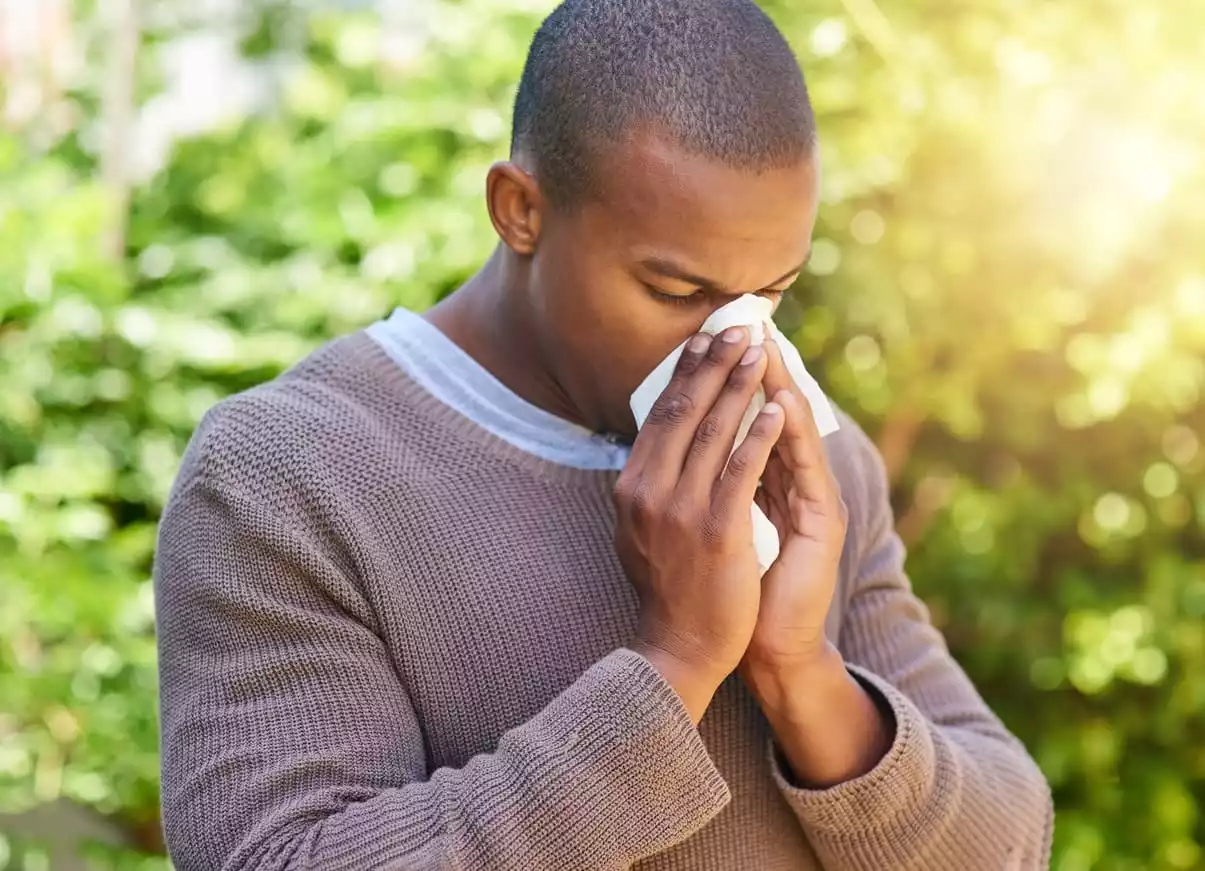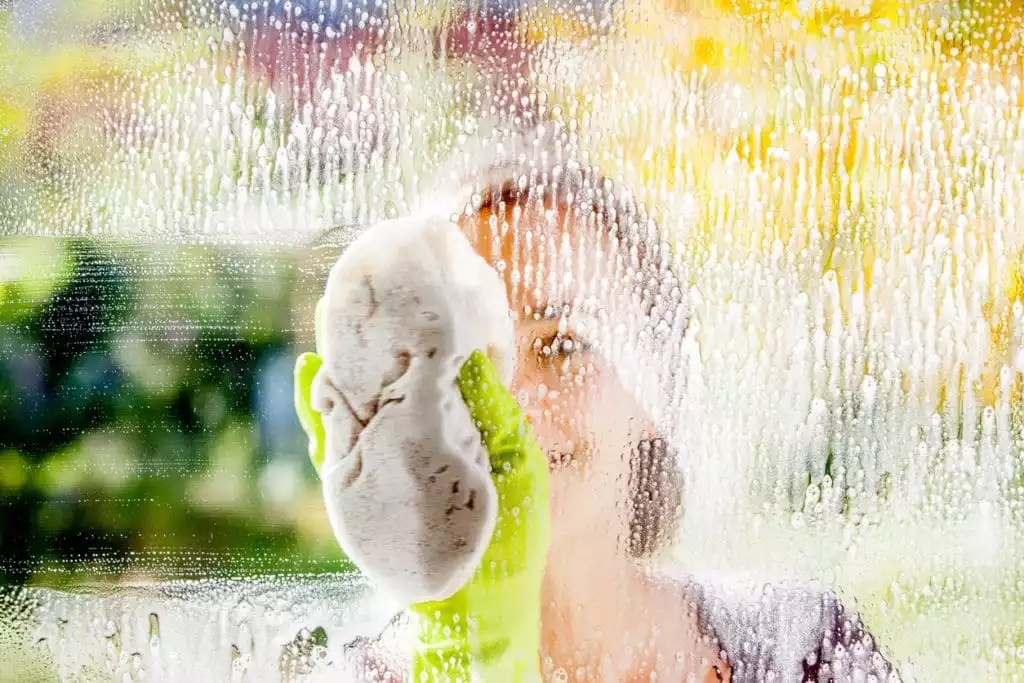
While seasonal allergies can impact you at any time of the year, a lot of people agree that spring allergies can be incredibly brutal. Runny noses, non-stop sneezing, watery eyes, stabbing sinus headaches, and never ending asthma flare-ups are incredibly inconvenient and leave even the best of us struggling.
Fortunately, you don’t have to struggle with spring allergies forever. Researchers know quite a bit about managing them, and there are good solutions available right at your local pharmacy. From medications to practical lifestyle adjustments, here’s what we suggest.
1. Limit Your Time Outdoors
While you may be struggling with cabin fever, diving right into the great outdoors isn’t the best idea for those who react strongly to spring allergens. That isn’t to say you can’t go outside at all, but pollen counts are usually at their peak first thing in the AM, so you should wait until later in the day if it is possible.
Pollen is easily blown through the air, so avoiding the outdoors on windy days is critical. If you do go out, wear sunglasses to protect your eyes and some sort of mask if you are doing yard work.
Don’t spend time outside when the lawn is being mowed, when pesticides or chemicals are being applied, or when large piles of brush are being moved around. Brush that has been sitting very often contains mold, which will exacerbate your symptoms even more.
Never, ever wear your day clothes to bed. They’re covered in pollen and will aggravate your condition. Change right away if you were doing yard work outside so that you are not continuously exposed to pollen throughout the rest of your day.
2. Nasal Rinses
When struggling with spring allergies, your nasal passages are incredibly sensitive to pollens and mold.
Regular nasal saline rinses help to dilute them and wash them out of your nasal passages.
There are two main options for nasal rinsing. One is a bottle you spray directly up into your sinuses, allowing it to run back out. The other is the neti pot, where you pour the solution into one side and allow it to flow out the other nostril.
While nasal rinses aren’t for everyone, daily use can be very helpful in reducing inflammation and allergy symptoms.
3. Clean Your House
Having severe spring allergies gives new meaning to spring cleaning your home.
All outdoor allergens can enter your home, especially through your windows and on your clothes and shoes. These issues are further compounded for individuals who have mold or dust mite allergies, creating a perfect storm of uncomfortable symptoms. Start by taking off your shoes as soon as you enter the home. Don’t be afraid to ask visitors to do the same.
Be cautious about opening your windows, instead opting to recirculate the air through your air conditioners.
Dust and vacuum regularly and try to keep your pets off of your bed. This is especially true for pets suffering from allergies as well. Believe it or not, dust mites love pet dander, so allowing your pets on your bed will attract more dust mites to the areas you need to keep clean for comfortable sleep.
Adding air filters throughout your home will help to clean some of the lighter allergens, like pollen, out of the air.
4. Exercise Regularly, but Safely
Those who struggle with spring allergies do theoretically have an immune disorder. Regular exercise boosts the immune system and help your body produce antibodies.
The healthier you are, the easier it will be for your body to deal with allergen exposure before you develop symptoms.
Exercise will also help you to control your cortisol levels, the hormone your body creates in response to stress. Higher stress levels will make it more difficult for your body to defend itself against allergens.
While exercise is important, outdoor exercise may not always be your best option. Make sure you have access to a gym or to home exercise programs you can use on the days outdoor allergen exposure levels are high.
5. Avoid Smoke At All Costs
Avoid cigarette smoke at all costs. If you smoke, do your best to stop. You need to avoid secondhand smoke as well.
The chemicals in cigarette smoke are incredibly irritating and will make allergy and asthma symptoms worse. You may need to avoid family members, friends, and even coworkers who regularly smoke, as the particles on their clothing can end up in your atmospheres and make you feel worse.
6. Use Natural Remedies Cautiously
There are some herbal remedies that may help you to control your spring allergies and symptoms.
Some popular options contain ingredients like biminne or Chinese skullcap. The problem is that a lot of these medications can cause allergic reactions of their own and others are contraindicated for use with medications for other health conditions.
Always speak to your doctor or pharmacist before adding herbal remedies to your arsenal.
7. Talk to Your Doctor About Medications for Spring Allergies
Of course, there are plenty of medications available to help control allergies. Over-the-counter options work well for a great number of people, but others find they aren’t enough alone.
Oral antihistamines work well but leave many people feeling drowsy. Nasal sprays are also helpful but may take several days to work and come with side effects like nosebleeds and dryness.
Seeing an allergist for testing is important if over-the-counter meds aren’t alleviating your symptoms. Simple skin testing can help to identify which specific allergens are causing your symptoms. This will help your doctor to choose the best combination of medications.
If other medications don’t work, allergy shots will help you to build up a resistance so that you ultimately will not need oral medications at all.
No matter what medications you choose, pay attention to your geographic location and when allergy season is most likely to begin. It is helpful to start taking your medications a week or two in advance to keep the inflammation down in your nasal passages and airways.
The more severe your symptoms get, the harder they will be to treat as the season progresses.
Spring allergies can be difficult to overcome, but there is no reason for you to suffer through the season. Talk to your healthcare provider if you are having trouble keeping your symptoms under control.
There is absolutely no reason for you to suffer when you could be enjoying a gorgeous change in season.

 info@burtsrx.com
info@burtsrx.com

